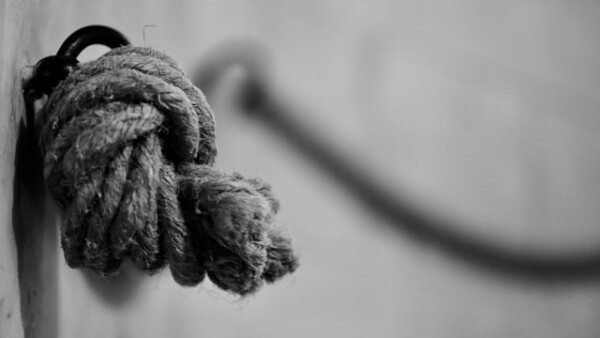Mary Ann Bertie and Other Jokes
All the lawns on Marianne Avenue are mowed on Wednesdays because that’s the weekly off. But not hers. Not his. Their lawns? Never mowed. Neighbors gossip about it. But they don’t mind. After all, that was the ice-breaker — what made them start a conversation when they first met at the library.
He told her about Mary Ann Bertie. He told her about Mary’s unhinged laugh, each time he’d manage to come up with a joke. To her confused expression, he added: Mary is the ivy in a ceramic mug on the window sill. Named her after a tennis star — not sure I saw the lady on TV, or I might have dreamt her up.
Nursing a slightly wounded pride because he had to explain what he’d thought was obvious all along, he also told her about his other companions. About bedside lamp Shawn that sometimes sung to him in his baritone voice, pieces from some old Bollywood musicals. About his own shadow that he’d named Muse, and how Muse once had an erratic break-dance routine ready for him when he returned from grocery shopping.
The last day they’d met, he also confided to her, after a long pause, in a solemn voice, ‘Now that I’ve been seeing you, they are all gone’.
He said he didn’t miss them much, for he waited for the hour at the library all day, and the walk back home in her company.
She had smiled approvingly. The blush showed wrinkles hitherto camouflaged by make-up. She didn’t mind the betrayal.
Sometimes in return for her company he gave out intimate details of his life; colored the sobriety of his youth with recollections of accounts from literature or theatre; punctuated the long pauses with little verses he remembered from poetry he had the opportunity to read. He never went to the movies because his vocation, he added, required intellectual discussions and acquaintance with the unadorned face of reality, and not features seeped in escapism. He always compensated the mundane narrative with full-throated laughter. And he apologized because he couldn’t make up for any romantic anecdotes. He’d always led a single life.
When she was not listening, she spoke. About the weather, the rustle of leaves at their feet as they walked beneath rows of trees, the nameless beauty of the moss-printed rocks.
It had only been three months since that day when she had responded to his invitation for his house-warming party, though the houses were not exactly next-door. She’d turned the corner of the huge warehouse between their houses, which was responsible for obstructing a direct view, and determined to arrive early, forgot her spectacles. She had soon found out she was the only one his age. Other guests were his students from the University of Natural Sciences, visiting this man who had retired to this quaint neighborhood at the end of a long teaching life.
You can’t figure out my years, he’d said, nobody ages like anybody else.
She hadn’t hazarded a guess, only noticed his gaze, a deliberate swoon of the pupil into the iris that drifted from her face to her legs tapering in pants too big.
Next day they’d met again, decided to walk the short distance to their homes. They’d halted at the crest of Summer Hill, right before the turn, as the lights below began to appear one by one, blinking at them, breathing. Then their conversation had meandered towards her childhood, and through bits of pieces formed a bridge to her youth, about which he was especially keen to know.
She hadn’t wished that. What was there to add to that memory?
Except, days in the squalid corridor jostling and soliciting olive-green-uniformed clients, freshly relieved from duty and on their way back to the barracks; the pimp who wasn’t that bad and bought her dinner, often a ride home… it clouded her mind. How, this carmine dusk, standing beside him, all those days seemed a cruel joke!
One evening, she walked up the hill, alone. Watched a retiring sun in the knowledge that the other was gazing too, in his home. But the realization that she was still thinking of him when he wasn’t near, at her age, shocked her. She abandoned the library visits.
Instead, over the phone, they fondly evaluated conversations they once shared.
If he was the one to call, he always followed his discourse with an impassioned speech about grieving without reason, his increasing reconciliation with age, about endless waits, about the desire for companionship, expecting expressions of sympathy in response to his misery and an assurance of the permanency of her company. But he always returned to his purposeless existence without any.
The last day they’d met, he had grabbed her hand. Her pupils were liquid. She had pulled her hand away.
‘Why, Leila?’
She hadn’t answered.
He had felt cold, frigid. Clenching his fists and thrusting them inside his side-pockets, he had watched her climb the steps to her home, pause before she turned the doorknob (when he thought she’d turn back), and disappeared inside.
In failing light, and eternal solitude of man frozen over centuries, he had walked back to his home.
He tried to obliterate the surge of emotions he’d felt that day during the long days without her company. He began adjusting to the calls becoming fewer and fewer. Until they stopped completely.
Three weeks after that, he took a detour, angry with himself and confused about her. From the library, he walked up along the steep ridge to visit her home.
There was none! In its place were shadows, and remnants of hurried dismantling.
He turned to look again and again, but more hollow air gathered, conspiring to blanket it in heavy fog, until he doubted the cottage ever existed.
He returned to Mary, Shawn and his shadow. And never went to the ridge side.
Thereafter, his lonely walks ended rapidly as his mind was occupied by the rhythmic pounding of his heart like a time traveler returning to base.
This morning he heard knocks on his door that he first dismissed, until they grew louder and louder.
This was after he had decided he was watching far more TV than usual, made his mind about switching the TV off for a week at least, and been appalled about his unorganized housekeeping for throwing out the trash bag without realizing it wasn’t garbage day.
When he opened the door, Leila was dragging a huge suitcase behind her.
Mary and Shawn were all ears to their conversation. Between giggles, she was telling him about how she was behind in rent-payment, and how one of those days, the owners decided to pull the house down, rebuild it, and gave her notice to vacate.
How she was too embarrassed about the whole thing, thought it might be another joke at her expense! Then she’d moved to a friend’s house until she could make up her mind about him.
He saw from the corner of his eyes: Mary Ann Bertie, the potted Ivy, was turning a little too green — envy-green, that was the color!

Mandira Pattnaik is the author of collections “Anatomy of a Storm-Weathered Quaint Townspeople” (2022, Fahmidan Publishing, Poetry), “Girls Who Don’t Cry” (2023, Alien Buddha Press, Flash Fiction) and “Where We Set Our Easel” (May 2023, Stanchion Publishing, Novellain-Flash). Mandira’s work has appeared in The McNeese Review, Penn Review, Quarterly West, Passages North, DASH, Miracle Monocle, Timber, Contrary, Watershed Review, Amsterdam Quarterly, Quarter After Eight and Best Small Fictions Anthology (2021), among others. Her writing has secured multiple nominations for Pushcart Prize, BotN, Best Small Fictions, Best Microfiction, and listing in Wigleaf Top50 (2023). More at mandirapattnaik.com Thank you for taking the time, Sincerely, Mandira Pattnaik



